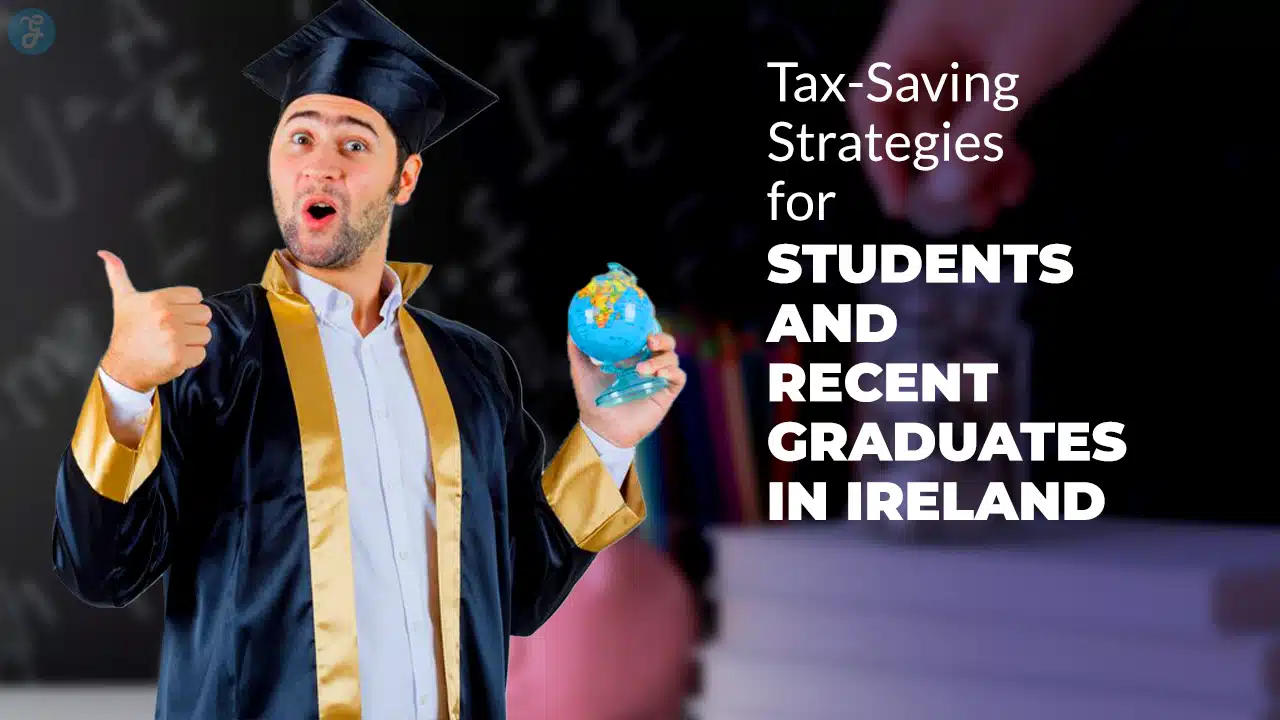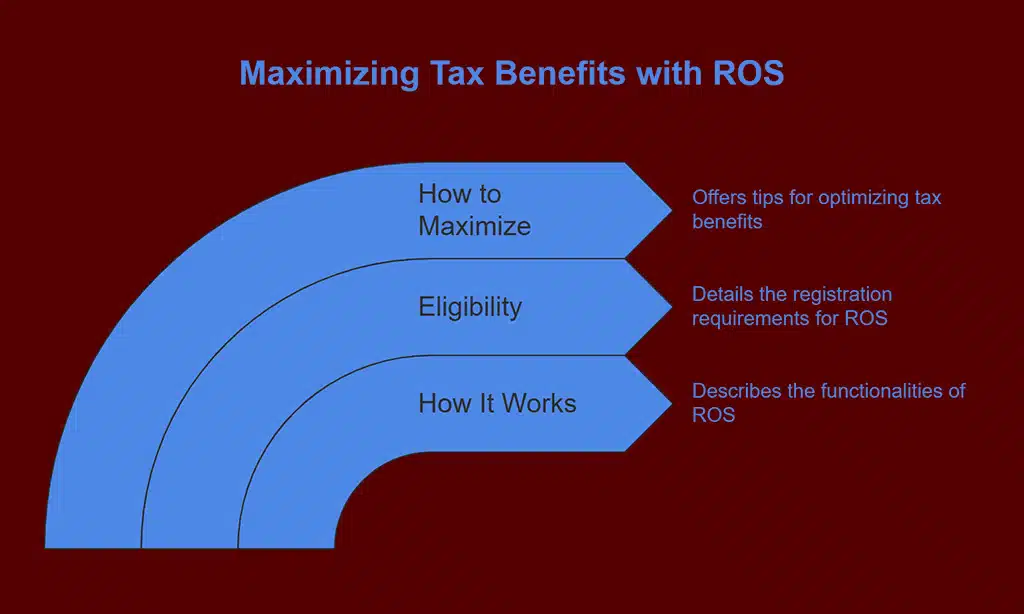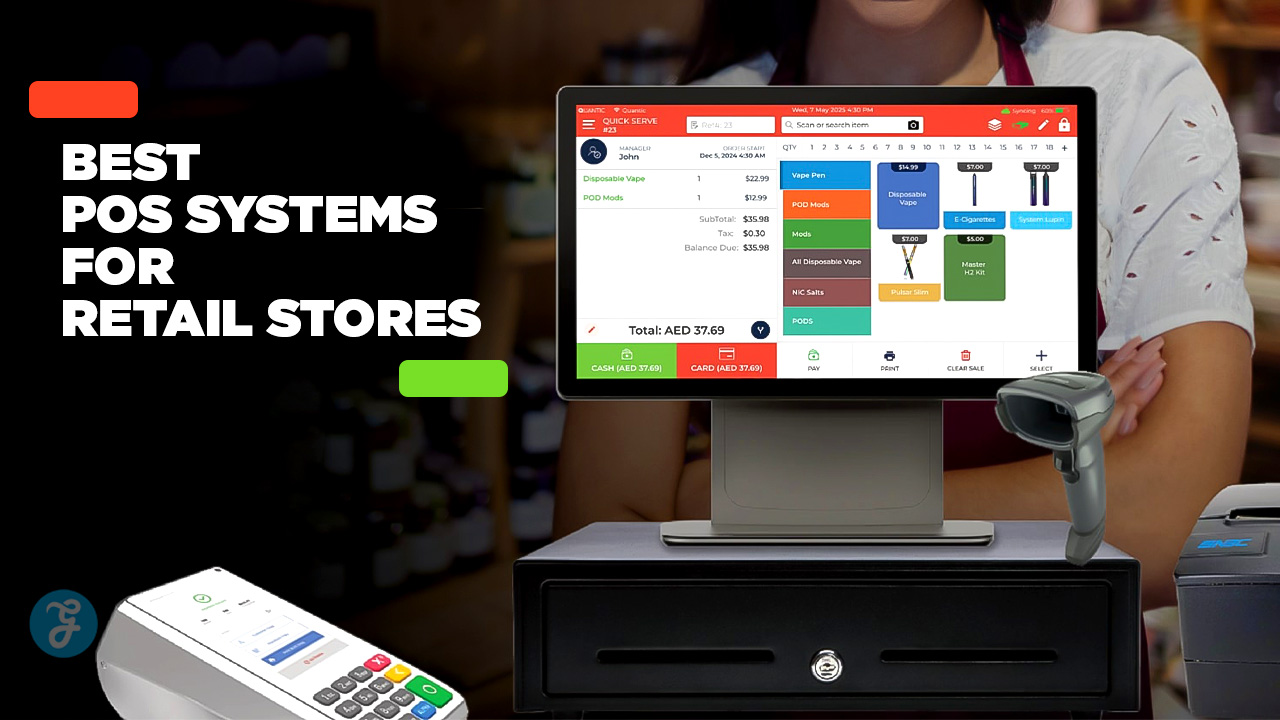Taxes may not be the first thing on your mind as a student or recent graduate in Ireland, but they can have a significant impact on your financial situation. Whether you are balancing a part-time job, navigating the world of postgraduate studies, or just starting your professional career, understanding and utilizing the Tax-Saving Strategies for Students and Recent Graduates in Ireland can save you a considerable amount of money.
These strategies allow you to keep more of your hard-earned income by reducing the amount of tax you need to pay. The good news is that Ireland offers several tax reliefs, credits, and deductions specifically designed for students and graduates, making it easier to maximize your tax savings.
This comprehensive guide will take you through 15 key tax-saving strategies available to students Recent graduates in Ireland. Each strategy is designed to help you save money and boost your financial well-being, so you can focus on your studies and career progression.
1. Student Tax Credit
The Student Tax Credit is a great tax-saving tool that reduces the amount of tax you owe, allowing students to save money during their time in college. This is particularly valuable for students who are working part-time jobs while studying.
- How It Works: As a student, you can claim up to €1,500 annually through this credit. The credit reduces the amount of tax you pay on your income from a part-time job or any other taxable income.
- Eligibility: You must be enrolled in an accredited third-level education institution (like a university or college) for the duration of your course.
- How to Claim: To claim this credit, you will need to file a tax return with the Revenue Commissioners. If you don’t owe any tax, the credit may not be refunded, but it can be carried forward to the next year.
- Practical Tip: If you have multiple sources of income (e.g., a part-time job and a student stipend), make sure to apply for this credit when filing your tax return to reduce the total amount of tax owed.
2. Claiming Tuition Fees and Educational Expenses
Students in Ireland who pay for their tuition fees can claim tax relief on these costs, which can save significant amounts. The government allows tax relief on both undergraduate and postgraduate tuition fees, making it a substantial saving for eligible students.
- How It Works: You can claim tax relief on fees you have paid to your educational institution. The relief applies to tuition fees up to €7,000 per year for a full-time undergraduate course. For postgraduate studies, the tax relief limit is the same.
- What Qualifies: Tuition fees are the primary eligible expense, but students may also claim tax relief for course-related materials (such as books, software, and study guides) and course-related travel (e.g., transport to and from campus).
- How to Claim: When filing your tax return, you must submit receipts for tuition payments and other related expenses. The relief is given at your highest rate of tax (either 20% or 40%), meaning the higher your tax bracket, the more you save.
| Eligible Expense | Tax Relief Available | Examples |
| Tuition Fees | Up to €7,000 annually | Full-time undergraduate or postgraduate tuition |
| Books & Materials | Eligible for relief | Books, software, stationery, etc. |
| Course-Related Travel | Eligible for relief | Travel expenses incurred for attending college |
3. Rent Tax Credit
For students living away from home, the Rent Tax Credit is a very helpful tax-saving strategy. Renting accommodation often comes with high costs, but this tax credit can help reduce your tax burden.
- How It Works: If you are paying rent to a registered landlord, you can claim a tax credit of up to €500 per year as an individual, or €1,000 per year if you are sharing accommodation with others.
- Eligibility: To qualify for this credit, your rent must be paid directly to a landlord who is registered with the Residential Tenancies Board (RTB). The property must also be located in Ireland.
- How to Claim: You need to include your rent payments when filing your annual tax return. It is important to keep all rent receipts and a record of your rent payments. Your claim will be reviewed by the Revenue Commissioners.
| Rent Payment | Tax Credit | Eligibility |
| Up to €500 annually | €500/year | Paid to a registered landlord |
| Up to €1,000 annually | €1,000/year | Shared accommodation with others |
4. Tax-Free Scholarships and Grants
If you’re a student, scholarships, and grants can provide financial relief, and the best part is that these are often tax-free.
- How It Works: Scholarships and government grants awarded for your educational expenses do not count as taxable income. This can significantly reduce the overall cost of education.
- Eligibility: You may be eligible for various scholarships based on academic performance, extracurricular achievements, or financial need. Additionally, some state-funded grants for students (like SUSI) are also tax-exempt.
- How to Apply: Scholarships are usually automatically awarded by the educational institution, while government grants can be applied for through the SUSI (Student Universal Support Ireland) website.
- Pro Tip: Always check the specific conditions of your scholarship or grant to ensure it’s tax-free. In some cases, certain stipulations may apply (e.g., if the scholarship is linked to future employment).
5. Benefit-in-Kind (BIK) Relief for Students
Benefit-in-Kind (BIK) refers to the non-cash benefits your employer provides, such as a company phone, car, or gym membership. These benefits are often taxed, but there are ways to reduce the tax burden.
- How It Works: While most benefits-in-kind are taxed, certain benefits are tax-free or tax-efficient. For example, if your employer provides you with a phone for work purposes or subsidizes your gym membership, you may not need to pay tax on those benefits.
- Eligibility: Check with your employer to see if the benefits you receive qualify for BIK relief. The benefit is taxable only on the portion of the benefit that is personal (i.e., used for non-work purposes).
- How to Maximize: Ensure your employer is aware of the correct classification of the benefit and ensure it is reported accurately to avoid unnecessary tax liability.
6. Tax Relief on Job-Related Expenses
For students working part-time jobs or recent graduates starting their career, you may incur certain job-related expenses. These expenses could be eligible for tax relief, helping reduce your taxable income.
- How It Works: The government allows tax relief on work-related expenses, such as uniforms, travel to work, and work-related tools or equipment. You can claim back a percentage of these expenses from your taxable income.
- Eligible Expenses: Some common expenses include uniforms (required for your job), travel expenses (for work-related travel), and professional tools.
- How to Claim: You must keep detailed records of these expenses, including receipts, and claim them on your annual tax return.
| Job-Related Expense | Tax Relief Available | Examples |
| Uniform & Work Clothing | Eligible for relief | Work uniforms, protective gear |
| Travel Costs | Eligible for relief | Commuting to work, work trips |
| Home Office Expenses | Eligible for relief | Office furniture, internet, etc. |
7. Pay As You Earn (PAYE) Tax Credit
The PAYE Tax Credit is available to most employees who pay tax under the PAYE system, which includes part-time student workers and full-time employees.
- How It Works: The PAYE tax credit is automatically applied by your employer and reduces the amount of tax deducted from your salary. This credit is worth €1,700 annually for most employees.
- Eligibility: If you are employed full-time or part-time and have taxes automatically deducted through PAYE, you are eligible for this credit. The amount is automatically factored into your pay.
- How to Maximize: Make sure you are registered for PAYE with the Revenue Commissioners, and check your pay slips to ensure the credit is being applied correctly.
8. Contribution to a Pension Fund
Although pensions may seem like a far-off concern, making contributions to a pension fund early can offer immediate tax benefits.
- How It Works: Contributions to a pension fund are deducted from your taxable income before tax is calculated, reducing your overall tax bill. The government offers tax relief on pension contributions up to a percentage of your income, depending on your age.
- Eligibility: You can begin contributing to a pension as soon as you start earning, and tax relief is available for most types of pension schemes, including employer-sponsored schemes and private pension plans.
- How to Claim: Pension contributions are deducted from your salary before tax, but if you’re self-employed or contributing on your own, you’ll need to report the contributions on your annual tax return.
9. Tax Relief for Self-Employed Students and Graduates
For students or recent graduates who work freelance or run their own business, you can benefit from tax relief on your business expenses.
- How It Works: Self-employed individuals can deduct many business-related expenses from their income, reducing the amount of income subject to tax. Expenses such as office supplies, software, marketing costs, and travel for business purposes are deductible.
- Eligibility: You must be self-employed and registered as such with the Revenue Commissioners. You can claim relief for any necessary and legitimate business expenses incurred while running your business.
- How to Claim: Keep detailed records of all business expenses, including invoices, receipts, and bank statements, and report them on your annual self-assessment tax return.
10. Medical Expenses Tax Relief
Medical costs can quickly add up, but students and recent graduates may qualify for tax relief on certain medical expenses.
- How It Works: You can claim tax relief on medical expenses that exceed €100 per year. This includes the cost of doctor visits, prescription medications, medical treatments, and even health insurance premiums.
- Eligibility: Medical expenses must be necessary, and the costs must not be reimbursed by other sources (like health insurance).
- How to Claim: You can claim relief by submitting your medical expenses to the Revenue Commissioners during your annual tax return, including receipts for all qualifying expenses.
11. Use of Online Tax Tools for Efficient Tax Filing
Managing your taxes online is easier than ever, especially with the help of Ireland’s Revenue Online Service (ROS).
- How It Works: ROS is an online platform provided by the Revenue Commissioners that allows you to file tax returns, claim refunds, and track your tax credits. The platform is particularly helpful for students and graduates who want to maximize their tax reliefs and credits.
- Eligibility: You must register with ROS to use the service. Many students and recent graduates qualify for easy online tax filing.
- How to Maximize: Use the ROS tax calculator to ensure you claim all eligible credits and deductions. You can also review your tax situation throughout the year and keep track of your tax payments
12. Tax Relief on Third-Level Course Fees
Some specialized third-level courses may qualify for additional tax relief, especially in areas related to professional development and skills training.
- How It Works: Tax relief is available on course fees for certain types of professional development programs, such as those in technology, healthcare, or business.
- Eligibility: The course must be accredited and related to your career or professional development. This includes evening courses, part-time programs, and specialized training.
- How to Claim: Report these expenses when you file your tax return, making sure to keep receipts and proof of course attendance.
13. Voluntary Contributions to Charity
If you’re a graduate with extra income or a student with disposable funds, donating to charity can reduce your tax burden.
- How It Works: Donations to registered charities are eligible for tax relief. If you donate more than €250 in a year, you can claim tax relief on your contributions.
- Eligibility: The charity must be registered with the Revenue Commissioners. Donations made by credit card or direct debit are particularly easy to track.
- How to Claim: Include your charitable donations in your tax return to claim the relief.
14. Capital Gains Tax Relief for Investments
If you’re a graduate with investments in stocks, bonds, or real estate, you may qualify for Capital Gains Tax (CGT) relief.
- How It Works: CGT applies to profits made from selling investments or property, but there is an annual exemption for the first €1,270 in gains.
- Eligibility: The relief applies to individuals who have made a capital gain in a given tax year.
- How to Claim: Report gains on your annual tax return to ensure you’re not taxed on amounts within the exemption.
15. Tax Relief on Childcare Costs for Graduates with Children
For recent graduates with children, the government offers tax relief on childcare costs.
- How It Works: Parents can claim relief for costs associated with daycare, after-school care, or childminders.
- Eligibility: The child must be under 12 years old, and the childcare provider must be registered with the relevant authorities.
- How to Claim: Report your childcare costs on your annual tax return and include receipts from the childcare provider.
Wrap Up: Maximizing Your Tax Savings
By applying these Tax-Saving Strategies for Students and Recent Graduates in Ireland, you can significantly reduce your tax liabilities while building a solid financial foundation. Whether you’re still studying, working part-time, or starting your career, there are numerous ways to keep more money in your pocket.
Remember to keep detailed records, be proactive about claiming tax credits and deductions, and use the available resources to maximize your savings.
Implementing these strategies now will not only improve your financial situation today but also lay the groundwork for future financial success.







































